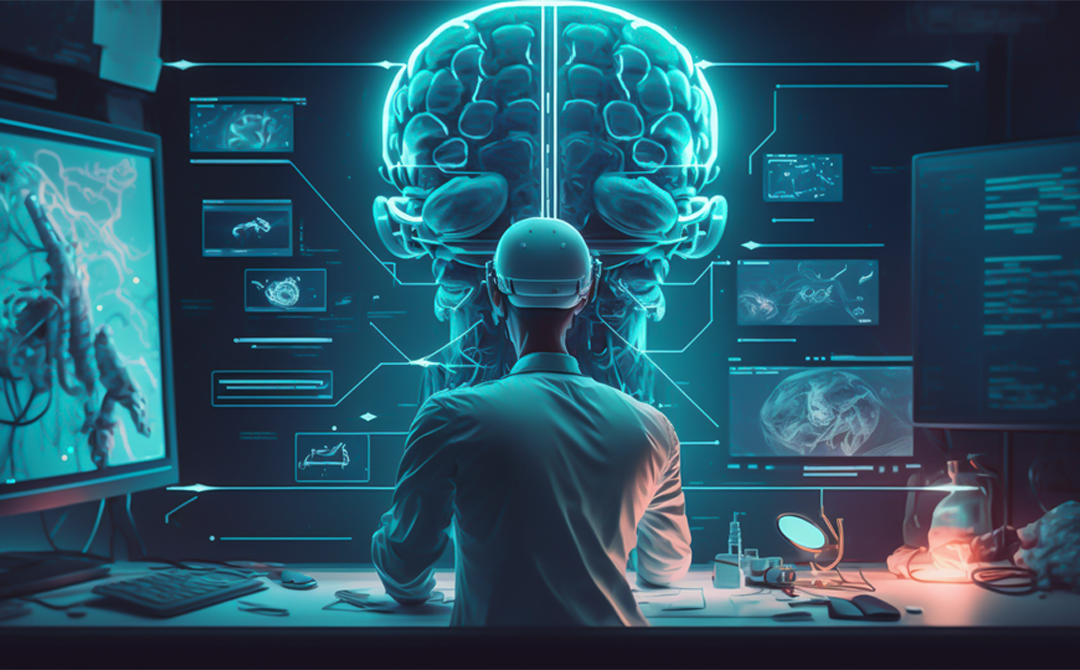
Healthcare is undergoing a seismic shift, and at the centre of this transformation is the rise of AI agents.
According to McKinsey, AI agents for healthcare could deliver up to $360 billion in annual savings for the United States alone by optimizing operations and improving clinical outcomes. From reducing administrative overload to assisting with patient diagnostics, these agents are becoming essential partners in care delivery. (Source: McKinsey)
Today’s healthcare environment demands speed, precision, and personalized care. Traditional models struggle while coping with increasing patient volumes, regulatory requirements, and data complexity.
AI agents for healthcare are stepping in as coordinated digital assistants that bridge these gaps, enabling organizations like hospitals, pharma companies, and life sciences firms to deliver better outcomes, faster.
In this blog, we will explore the key areas where AI agents are transforming healthcare.
Areas Where AI Agents Can Help
Healthcare is not a monolithic industry; it spans a wide range of domains, including pharmaceuticals, life sciences, clinical care, insurance, and medical devices.
AI agents are proving versatile across these domains by reducing inefficiencies, enhancing patient experiences, and unlocking deeper insights. Let us explore the critical areas where AI agents are making a measurable difference.
Pharmaceutical Industry
In the pharmaceutical sector, speed and accuracy in drug discovery and development are vital. AI agents are transforming traditional R&D processes by automating data collection, identifying potential compounds faster, and predicting clinical trial outcomes.
For instance, companies that leverage AI agents have reported a 25 to 30 percent reduction in drug development timelines. AI agents also support post-market surveillance by monitoring adverse events through real-time data analysis, ensuring patient safety and regulatory compliance. (Source: Drug development timelines)
Key Contributions:
- Accelerating drug discovery using machine learning algorithms.
- Managing large datasets from clinical trials more efficiently.
- Enhancing pharmacovigilance with real-time reporting of adverse events.
Life Sciences
Life sciences companies deal with massive volumes of biological data, clinical research, and genomics. AI agents act as digital researchers processing complex datasets, uncovering patterns, and suggesting novel hypotheses at a scale impossible for human teams alone.
According to Deloitte, AI adoption in the life sciences is projected to grow by 32 percent annually over the next five years, reflecting the sector’s desire for faster and more accurate scientific breakthroughs. (Source: Deloitte)
Key Contributions:
- Identifying biomarkers and genetic variations linked to diseases.
- Assisting in personalized medicine development.
- Streamlining research data management and regulatory submissions.
Medical/Clinical Care
AI agents are most visible in direct clinical applications. From scheduling appointments and managing electronic health records (EHRS) to providing real-time diagnostic support to physicians, these agents help optimize both administrative and patient-facing workflows. A report from the World Economic Forum highlights that AI-enabled administrative agents can reduce healthcare administrative costs by up to $17 billion annually. (Source: World Economic Forum)
Key Contributions:
- Reducing physician burnout by handling repetitive tasks like documentation.
- Providing clinical decision support by analyzing patient history and symptoms.
- Facilitating remote monitoring and virtual care in telehealth environments.
AI agents reshape every facet of healthcare from accelerating innovations, research and drug discovery to streamlining clinical workflows and enhancing patient care, driving a smarter, more responsive, and patient-centered healthcare system.
Real-World Applications: How Healthcare Organizations Use AI Agents Today
AI agents are no longer a futuristic concept, they are actively transforming healthcare delivery across the globe. From automating administrative tasks to supporting clinical decision-making, organizations are deploying AI agents to drive efficiency, enhance patient experiences, and reduce operational burdens. Here are some real-world examples of how healthcare institutions are putting AI agents to work:
1. Patient Triage and Virtual Nursing
Hospitals are using AI agents to help triage patients during emergency visits. These agents collect symptom details, prioritize cases based on severity, and streamline patient flow through the emergency department. Virtual nursing agents also provide post-discharge instructions, medication reminders, and wellness tips, which improves continuity of care.
2. Chronic Disease Monitoring
Health systems have implemented AI agents to remotely monitor patients with chronic conditions like diabetes and hypertension. These agents collect daily health metrics, analyze patterns, and alert care teams when a patient shows signs of deterioration, allowing for proactive interventions.
3. Administrative Automation
Organizations have deployed AI agents to handle repetitive administrative tasks, such as billing, insurance verification, and clinical documentation. Automating these workflows not only frees up healthcare providers to focus on patient care but also significantly reduces operational costs.
4. Mental Health Support
In the UK, the National Health Service (NHS) has piloted AI-powered mental health agents to provide emotional support to young adults dealing with anxiety, stress, and depression. These conversational agents offer evidence-based cognitive behavioral therapy (CBT) techniques and have shown promising results in early intervention. (Source: NHS)
These use cases showcase the immense potential of AI agents in healthcare, from improving clinical outcomes to optimizing operational efficiency. As adoption increases, coordinated networks of AI agents will further expand these capabilities, delivering smarter, more patient-centric care at scale.
Turn real-world healthcare AI applications into enterprise-wide transformation with Milky Way.
What to Look for in an Ideal Healthcare AI Agent
Choosing the right AI agent for your healthcare organization goes beyond selecting an impressive user interface. The ideal AI agent must seamlessly integrate into clinical and administrative workflows while ensuring compliance, security, and accuracy. Organizations often partner with specialized AI consulting firms to assess workflow gaps, define use cases, and select the most effective healthcare AI agents tailored to their unique operational needs.
- Healthcare-Specific Natural Language Processing (NLP) Capabilities: An AI agent built for healthcare should understand medical terminology, abbreviations, and contextual language used by clinicians and patients. Advanced NLP ensures the agent interprets queries correctly and responds with clinically accurate information.
- Integration with Existing Systems: The agent must integrate smoothly with existing EHR platforms, lab systems, telehealth solutions, and hospital information systems. A non-disruptive setup avoids workflow interruptions and ensures fast adoption.
- HIPAA and Global Compliance Readiness: Privacy is paramount. Ensure your AI agent is compliant with HIPAA in the U.S. or with relevant standards, such as GDPR or HL7, in other regions. Compliance ensures patient data stays secure and reduces legal risk.
- Real-Time Decision Support: Top healthcare AI agents go beyond automation; they provide contextual recommendations during diagnosis, treatment planning, or medication reconciliation.
- Multilingual and Multi-Channel Support: Healthcare systems are increasingly global and diverse. An ideal agent must understand multiple languages and work across voice, text, app, and desktop platforms, meeting users where they are.
- Scalability and Learning Ability: The right AI agent evolves with your organization. Look for agents that support continuous learning and can adapt to new workflows, updated protocols, and organizational growth.
- Patient and Clinician-Centric Design: Usability is critical. The agent should enhance the user experience both for patients engaging via chatbots and clinicians relying on backend AI.
Selecting the right AI agent is a strategic decision that impacts operational efficiency, clinical outcomes, and patient satisfaction. Focusing on domain-specific capabilities, regulatory compliance, user-centric design, and seamless integration, you can unlock the full potential of AI agents for smarter, safer, and connected care.
Best AI Agents in Healthcare
As healthcare organizations aim to scale personalized care, reduce operational burdens, and drive better outcomes, selecting the right AI agent becomes critical. From administrative automation to mental health support, these leading AI agents are transforming the healthcare industry. Here is a closer look at some of the top players driving this change.
Hippocratic AI
Hippocratic AI is pioneering a safe, trustworthy approach to AI agents in healthcare. Rather than replacing licensed clinicians, Hippocratic focuses on supplementing healthcare operations by offering non-diagnostic, supportive services through specialized large language models (LLMs). Their mission is to improve care delivery while maintaining patient safety and adhering to ethical standards in digital health innovation.
Key Features:
- Specializes in virtual nursing, post-discharge follow-ups, and chronic care management.
- Designed with built-in safety protocols to minimize risks of misinformation.
- Facilitates proactive patient engagement by providing timely reminders and wellness check-ins.
Limitations: Primarily focuses on administrative and monitoring roles, not diagnostic decision-making.
ONE AI Health
ONE AI Health is redefining healthcare operations by offering AI agents that combine clinical, operational, and financial insights. Their platform supports coordinated decision-making across patient care journeys, enabling hospitals and clinics to optimize treatment pathways and resource management simultaneously. This integrated approach reflects the future of coordinated AI agents advancing healthcare ecosystems.
Key Features:
- Personalizes treatment plans by analyzing multidimensional patient data.
- Enhances hospital operations with predictive analytics and capacity planning.
- Focuses heavily on collaboration among healthcare departments.
Limitations: Integration with legacy healthcare systems can require significant customization efforts.
HealthForce AI
HealthForce AI delivers intelligent virtual healthcare assistants designed to streamline patient engagement, chronic disease management, and care coordination. Their AI solutions support early intervention models by proactively monitoring patient health metrics and ensuring better treatment adherence, creating a bridge between patients and clinical teams.
Key Features:
- Automates triage, appointment scheduling, and post-visit engagement.
- Monitors patients with chronic diseases and flags high-risk cases early.
- Improves patient adherence to prescribed treatment plans.
Limitations: Requires regular updates to align with evolving healthcare compliance standards.
Amelia AI Agents
Amelia offers conversational AI agents that enhance patient and provider interactions across healthcare ecosystems. Their human-like virtual assistants manage administrative tasks such as scheduling, insurance verification, and patient communications, improving operational efficiency while reducing the burden on healthcare staff.
Key Features:
- Streamlines appointment management and insurance pre-approvals.
- Provides multilingual communication capabilities for diverse populations.
- Easily integrates with EHR systems, telehealth platforms, and hospital management software.
Limitations: Primarily optimized for non-clinical workflows and patient-facing services.
Notable Health
Notable Health focuses on automating administrative workflows through intelligent process automation (IPA) specifically tailored for healthcare environments. Their AI-driven solutions minimize manual entry tasks, streamline clinical documentation, and optimize revenue cycle operations, allowing clinicians to spend more time with patients.
Key Features:
- Automates charting, referrals, billing, and prior authorizations.
- Reduces administrative overhead to improve staff productivity.
- Enhances data accuracy within EHRs.
Limitations: Requires upfront investment in configuring healthcare-specific workflows.
Inbenta
Inbenta specializes in deploying AI-powered self-service platforms for healthcare organizations. Their virtual assistants, powered by proprietary NLP engines, help manage administrative tasks while improving the digital experience for patients across multiple channels.
Key Features:
- Automates appointment booking, insurance claim verification, and billing inquiries.
- Deploys healthcare-trained conversational AI models.
- Enables easy customizations based on healthcare providers' needs.
Limitations: More suited for administrative automation than clinical decision support.
Optum
Optum, a major player in healthcare innovation, leverages AI to improve clinical outcomes, operational efficiency, and predictive modeling. Their solutions deliver actionable insights that help healthcare providers better allocate resources, anticipate patient needs, and optimize care delivery.
Key Features:
- Uses predictive analytics to identify patient risks and recommend interventions.
- Helps optimize staffing models and resource utilization.
- Supports data-driven clinical decision-making for improved outcomes.
Limitations: Larger organizations may realize more substantial ROI compared to smaller practices.
Woebot and Wysa
Woebot and Wysa are specialized AI mental health agents designed to provide evidence-based emotional support and early intervention through digital conversations. Both platforms offer personalized CBT tools to help users manage anxiety, depression, and stress, democratizing mental health support access globally.
Key Features:
- Offers 24/7 access to confidential, AI-driven emotional support.
- Uses evidence-based techniques, such as CBT and mindfulness exercises.
- Designed for early detection of mental health concerns and ongoing emotional wellness support.
Limitations: Best suited for low-to-moderate mental health support; severe conditions require professional human intervention.
These top AI agents for healthcare enhance operational workflows and redefine how healthcare is delivered, accessed, and experienced by strategically scaling personalized care and driving better outcomes.
Trust and Ethics: The Cornerstone of AI Agents in Healthcare
As AI agents take on increasingly critical roles in healthcare, from patient engagement to clinical decision support, the importance of trust, ethics, and transparency cannot be overstated. In healthcare, decisions often carry life-altering consequences. Therefore, organizations deploying AI agents must prioritize ethical design, fairness, and accountability from the outset.
A study by the World Economic Forum emphasizes that patient trust in AI-driven healthcare systems directly impacts adoption rates. Without transparent algorithms and ethical governance, even the most technically advanced AI agent could erode patient confidence, invite regulatory penalties, or result in harmful outcomes. (Source: World Economic Forum)
Here are key ethical challenges healthcare AI agents must address:
1. Bias and Fairness: AI models trained on biased datasets can unintentionally perpetuate health disparities. It is critical to ensure that healthcare AI agents are trained on diverse, representative datasets to provide equitable care recommendations across populations.
2. Transparency and Explainability: Clinicians and patients must understand how AI agents arrive at their decisions. Explainable AI (XAI) methods make these decision-making processes transparent, helping to build confidence and ensure clinical validation.
3. Privacy and Security: Patient data privacy must be safeguarded through encryption, secure data handling protocols, and strict adherence to regulations like HIPAA and GDPR. Robust cybersecurity practices are crucial for protecting against data breaches.
4. Human Oversight: AI agents should augment, not replace clinical judgment. Human-in-the-loop (HITL) designs ensure that critical healthcare decisions always have human validation at necessary checkpoints.
As AI agents become integral to the healthcare ecosystem, their ethical deployment must remain a top priority to ensure fairness, transparency, and privacy.
How Can Agentic AI in Healthcare Evolve in the Future?
As healthcare systems continue to digitize, the future of AI agents lies not just in isolated automation but in intelligent coordination. Rather than functioning as standalone tools, agentic AI in healthcare is evolving into interconnected ecosystems, where multiple AI agents collaborate seamlessly to deliver faster, safer, and more personalized care.
A significant emerging trend is the rise of coordinated AI agents for advancing healthcare. These agents work in synergy, handling clinical tasks, administrative functions, patient communication, and resource management simultaneously across the care continuum. For instance, while one AI agent assists physicians in analyzing diagnostic images, another handles patient intake simultaneously, and a third manages appointment scheduling and insurance processing. The result is a unified, efficient healthcare experience where delays and data silos are minimized.
Several key factors will drive the next phase of agentic AI evolution in healthcare:
1. Multi-Agent Collaboration: AI agents will increasingly function as a coordinated network rather than isolated systems. Intelligent workflows will enable agents to pass information and tasks to each other in real time, improving efficiency and care continuity.
2. Greater Focus on Personalization: Future AI agents will move beyond general recommendations toward highly personalized care plans. They will leverage patient history, genomics, lifestyle data, and social determinants of health to offer individualized health guidance.
3. Regulatory and Ethical Frameworks: As agentic AI capabilities expand, regulators will establish stricter guidelines to ensure safety, accountability, and data privacy. Compliance frameworks such as HIPAA and GDPR, as well as newer AI-specific regulations, will shape AI deployment models.
4. Explainable and Transparent AI: Healthcare stakeholders will demand greater visibility into how AI agents make decisions. Explainable AI (XAI) will become critical, ensuring that clinicians and patients can trust and understand AI-driven recommendations.
5. Proactive and Predictive Interventions: Next-generation AI agents will not just react to inputs, they will proactively predict patient deterioration, suggest preventive care measures, and intervene early in disease progression.
6. Mental Health and Behavioral AI Growth: With increasing awareness of mental health, specialized AI agents for behavioral health support, emotional wellness coaching, and early intervention are expected to see widespread adoption.
Embracing coordinated AI agents can help you deliver seamless, personalized, and proactive care by redefining efficiency, equity, and healthcare outcomes.
Conclusion
The healthcare industry is at a pivotal moment where embracing digital innovation is no longer optional, it is essential. AI agents for healthcare are leading this transformation by bridging operational gaps, enhancing patient engagement, and supporting clinical excellence.
From administrative efficiency to coordinated patient care, AI agents have proven they can ease workloads, improve outcomes, and help organizations stay competitive in an increasingly complex healthcare environment.
As AI technology continues to evolve, the future will favor healthcare systems that adopt coordinated AI agent networks that can work collaboratively across different touchpoints of the patient's journey. Organizations that invest today in smart, scalable AI agent solutions will be better positioned to deliver proactive care, achieve operational resilience, and meet rising patient expectations.
At Tredence, we specialize in helping healthcare organizations harness the power of AI through tailored solutions and strategic AI healthcare consulting services. Whether you are exploring agentic automation, modernizing clinical workflows, or building coordinated AI ecosystems, our experts are here to guide your transformation.
Connect with us to explore how we can co-create the future of healthcare, powered by data, intelligence, and innovation.
FAQs
Are AI agents involved in diagnostics, or just administrative tasks?
AI agents in healthcare primarily focus on administrative and supportive roles, such as appointment scheduling, patient engagement, and document automation. However, certain advanced agents are being developed to assist clinicians in diagnostics by analyzing imaging data, suggesting treatment plans, or flagging high-risk patients. Importantly, diagnostic AI is often used as a decision-support tool rather than a replacement for licensed practitioners.
How do hospitals ensure AI agents follow privacy and compliance rules?
Hospitals ensure AI agents meet privacy and compliance standards by selecting solutions that are HIPAA-compliant in the U.S., and aligned with regulations like GDPR and HL7 internationally. Additionally, healthcare organizations conduct regular security audits, data encryption protocols, and use role-based access controls to protect patient information. Vendors must also adhere to ethical AI development practices to maintain trust and safety.
What role do AI agents play in telehealth or remote care?
AI agents have become crucial enablers of telehealth and remote care delivery. They assist in virtual appointment scheduling, patient intake, symptom triaging, remote monitoring of chronic conditions, and even emotional support through conversational interfaces. By automating backend operations and improving real-time patient communication, AI agents make remote care more accessible, efficient, and patient-centric

AUTHOR - FOLLOW
Editorial Team
Tredence
Next Topic
AI Agents for Data Engineering: The Complete Guide to Intelligent Automation
Next Topic




